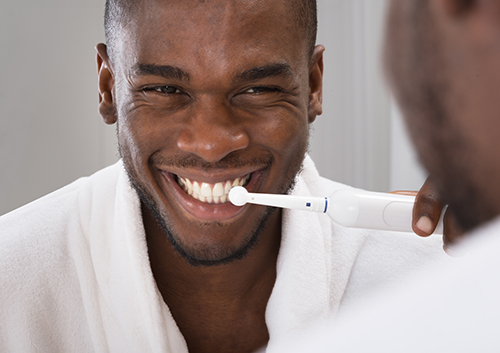Getting Ready for Winter
November 2nd, 2023

Winter Is Coming.
Okay, that sounded a lot more dramatic in a popular fantasy series. But here in the real world, winter is coming as well, so let’s look at some easy steps you can take to keep your teeth and gums healthy during this icy season.
Remember to Hydrate
Dehydration is dangerous for your health in general, and it’s also bad for your dental health. A dry mouth is more vulnerable to gum disease and tooth decay because there’s less saliva to help maintain a healthy oral environment. Saliva helps wash away food particles and bacteria, works to neutralize the cavity-causing acids they produce, and strengthens tooth enamel with its mineral content.
Summer means heat and perspiration—two obvious causes of dehydration. Winter, though, has its own more subtle ways to dry you out.
- Just as you lose moisture through summer perspiration, you lose moisture with a winter workout as well. That foggy cloud you see when you exhale outdoors? That’s water vapor leaving your body.
- Cold weather means it’s time to kick up the heating system a few degrees. But unlike heated summer outdoor air, heated winter indoor air is not as humid, so it’s more drying.
- Some of us just aren’t as thirsty during winter months, and so we don’t hydrate as regularly as we do in the summer. And while summer menus tend to offer foods like salad, fruits, and iced drinks which automatically provide us with a lot of water content, winter menus? Not so much. Keep up with your daily recommended amount of water throughout the year for a healthier body and healthier teeth and gums.
Wear Your Mouthguard
Whether it’s skiing, hockey, snowboarding, or skating, those winter sports can be hard on your teeth. That’s why it’s important to wear your mouthguard when you’re getting the most out of the snow and ice. Mouthguards help prevent injuries to your teeth and provide protection for your jaw and mouth, too.
And a sport doesn’t have to involve snow and ice to be a winter hazard for your teeth. The combination of hard courts, flying elbows, and body contact make basketball a leader in the dental injuries competition. In fact, any sport which involves potential falls or personal contact is a good candidate for a mouthguard.
Mouthguards are available in several forms:
- One-size-fits-all, pre-formed mouthguards can be found in drugstores and sporting goods stores.
- “Boil-and-bite” models are warmed in hot water and then shaped when you bite down. The fit is somewhat more comfortable than a stock guard.
- Custom-made guards from your dentist are precisely molded to your teeth and mouth, letting you speak and breathe more comfortably.
If you haven’t gotten a mouthguard yet, or your old high school guard was retired years ago, talk to Dr. John Zarrella and Dr. Peter C. Rider about a custom guard. While the over-the-counter options are better than going unprotected, a custom mouthguard fits your teeth perfectly—and comfortably!
Get to the Bottom of Winter Sensitivity
That first breath of frosty air might be more alarming than invigorating when tooth pain and sensitivity makes being out in the cold an unpleasant experience. Sensitivity to cold air or warm winter drinks can be an important symptom, caused by a number of dental conditions such as:
- Cracked teeth
- Cavities
- Exposed dentin (the layer of the tooth underneath your enamel)
- Receding gums
- Over-vigorous brushing
If the cold weather is keeping you indoors because of oral sensitivity, give us a call.
Even though this can be a very busy time of year, if you’re due for a checkup and cleaning at our Ashland office, or if you have any concerns about your teeth and gums, make time for your dental health. We want to make sure you’re ready to enjoy every frosty moment of the season!







